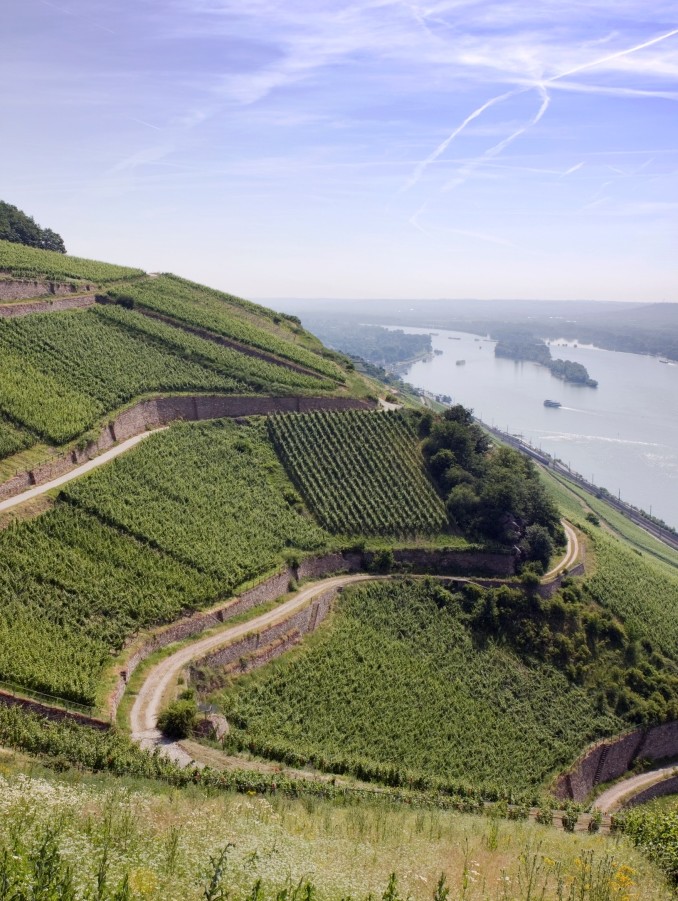By Ed Merrison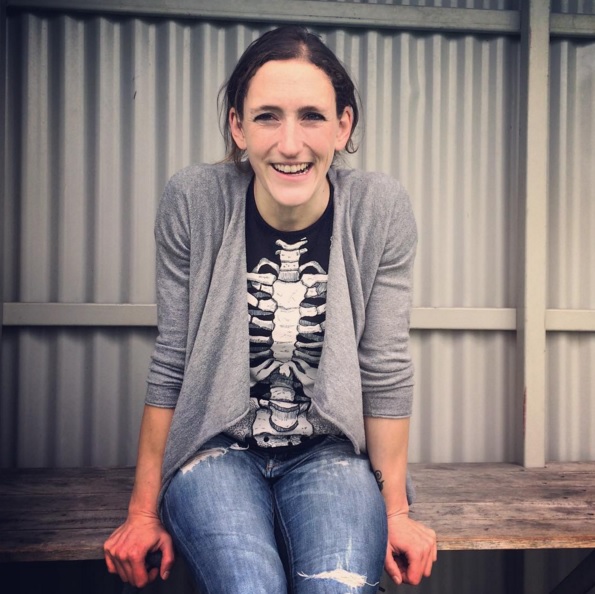 “I felt so at the right place. I saw my mum and my uncle and they all said ‘Go away. Take some time off. Do whatever you want’. Nobody said ‘You have to do it’. None of the family said that. I had to actually convince them that I wanted to stay, that I wanted to be there. I just felt at home.”
“I felt so at the right place. I saw my mum and my uncle and they all said ‘Go away. Take some time off. Do whatever you want’. Nobody said ‘You have to do it’. None of the family said that. I had to actually convince them that I wanted to stay, that I wanted to be there. I just felt at home.”
It was the moment that Theresa Breuer’s fate was sealed. May 2004; she was 20 years old and her father Bernhard had just died suddenly. Setting aside the tragic circumstances that led to her premature accession to the helm of the family estate, these were enormous shoes to fill. Bernhard Breuer was one of Germany’s most respected winegrowers and perhaps the doughtiest campaigner for its dry Riesling in the global arena.
Barely a decade later, this slight and smiling 31-year-old has been named Winemaker of the Year by influential European magazine Falstaff. It’s an outstanding achievement, and one that honours her clarity of purpose and sensitivity to the people and land around her.
“Precise” is her word for what’s she’s striving for. And though she’d never claim making great wine is easy, she constantly stresses the simplicity underlying this pursuit. After all, her forebears – especially her father – discovered and distilled the precious attributes of these grand cru sites in the Rheingau.
These have been nurtured even more closely since Theresa took over. A move to organic viticulture began a decade ago, and since 2011 all vineyards have been farmed 100% organically. The winery is certified sustainable and a member of Germany’s FAIR’N GREEN scheme. She’s had to add a couple of vineyard workers and the rest now have to toil even harder. It’s paying off, though, with a more motivated team and better growing environment. “We’re just paying so much more attention. We’re a bit more on the spot with everything we do,” she explains. “There are more plants growing, the colour of the leaves is different. There’s a change going on. Really I hope we’ll get healthier fruit. I think less botrytis will be the result as the grape skins are developing a different structure, and you can see the soils are healthy again. I just want to make sure we can go on making wines for the next, I don’t know, 300 years.”
Theresa espouses “boring winemaking”. There’s no fancy technique or technology here. The cellar beneath the town of Rüdesheim is lo-fi in the extreme. When it does get rebuilt, temperature control will be one of the few concessions to modernity – but “just so we can continue to be boring”.
The treatment of the estate’s pinnacle wine, from the Schlossberg vineyard, sets the no-frills template followed across the Georg Breuer range. The family owns seven discrete plots from the bottom to the top of the vineyard, with altitudes varying from 90m to 350m. Each plot is picked by hand in separate lots on different days. The grapes are immediately whole bunch-pressed and then vinified separately. The seven wines are aged in separate old barrels. “We then start to pick out what we want. We want to be really precise on the style of the vintage.” Anything seen as less than the perfect expression of time and place doesn’t make the cut.
An incredibly close bond underpins this stylistic exactitude. Theresa’s faithful accomplices are Markus Lundén and Hermann Schmoranz. Markus was a sommelier and Georg Breuer fanboy who began an internship March 2004, two months before Theresa took the reins. Hermann was an engineering student when he joined the estate as part-time tractor driver in 1987. Ex-somm Markus is driven by flavours and sensory responses, while Hermann (pictured below) has a way with nature. The former is now happily ensconced in the cellar, the latter in his element in the fields. They are collectively the keeper of the house. “It’s been the three of us since my father passed away,” says Theresa. “There’s not been one cellar tasting where one of us was missing. We would never do a blend if one us is not in shape. It has to be the same team every time.” 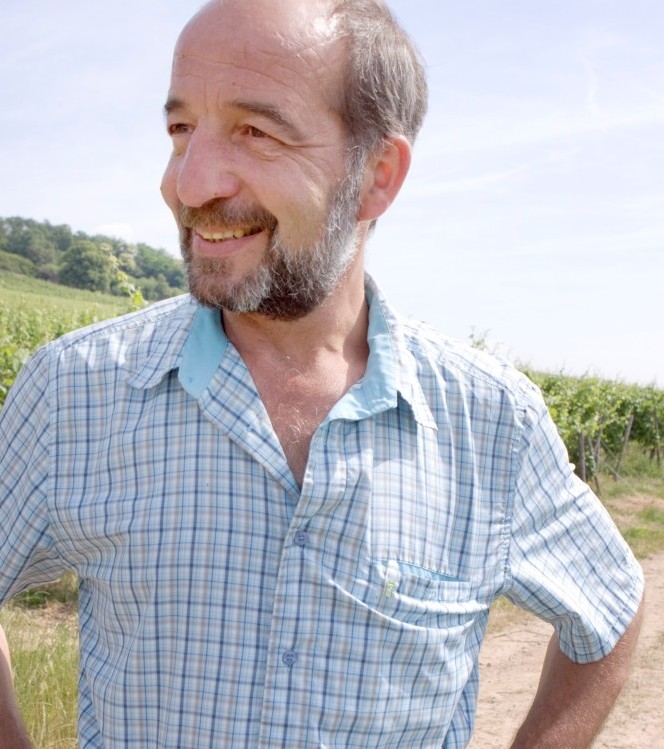 Like her uncle Heinrich, Hermann played an especially important role as the bridge between Bernhard’s era and Theresa’s stewardship. “He was always like a second father for me,” says Theresa. “On the other hand he was extremely sensitive in teaching me everything but also asking for decisions. He told me the options and asked for a decision, which is I think a huge thing for a grown-up man, having this little girl there and fulfilling a role that I was not fit and able to do at all. So he really helped me through that whole process enormously.”
Like her uncle Heinrich, Hermann played an especially important role as the bridge between Bernhard’s era and Theresa’s stewardship. “He was always like a second father for me,” says Theresa. “On the other hand he was extremely sensitive in teaching me everything but also asking for decisions. He told me the options and asked for a decision, which is I think a huge thing for a grown-up man, having this little girl there and fulfilling a role that I was not fit and able to do at all. So he really helped me through that whole process enormously.”
Theresa never got to work with her father on a similar level but she was picking grapes and helping in the winery before she even started school. She loves being in the vineyard, and the harvest days of her childhood were happy ones. “That was also the only period when my father was really home, because he was travelling quite a lot. Picking grapes was actually a chance to see him.”
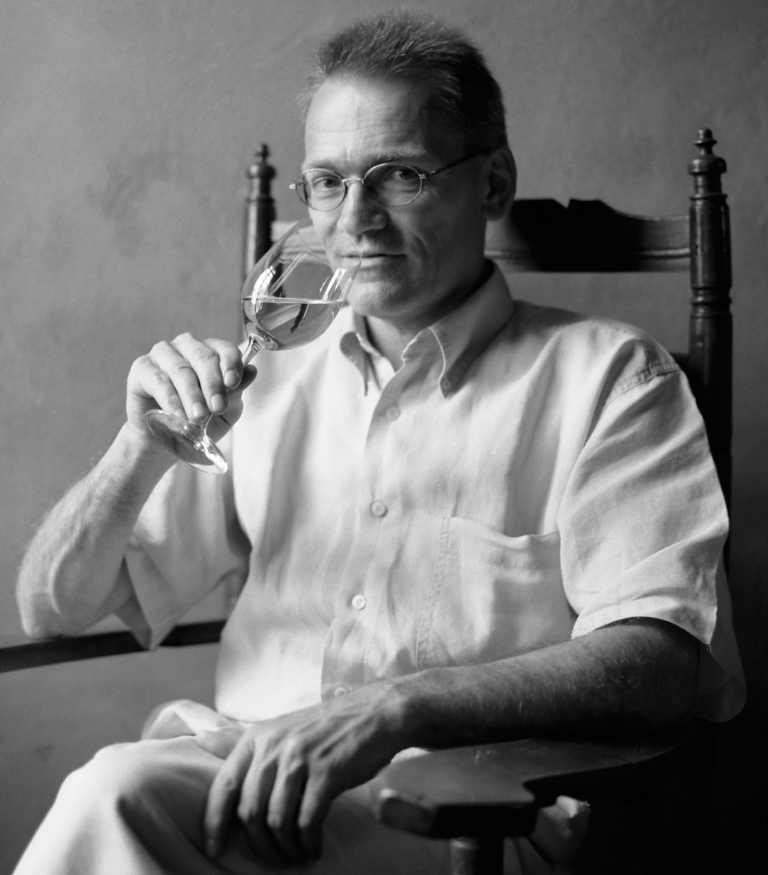
Bernhard Breuer
Forthright, pioneering and something of a rebel, Bernhard was OK with not being friends with everybody. “What I’ve learned from many people who were close to him and who’ve maybe not been friends but respected him in a really intense way, is that he really stood up for his ideas,” says Theresa. “He had a plan, and if the whole gang wasn’t following, it wasn’t a problem for him. He wasn’t one of those guys who needed to have 20 people around him because he was really strong in his beliefs and strict in the way he followed them.”
In his memoir A Life Uncorked, English writer Hugh Johnson writes fondly of those principles. “The purity of Rheingau wine was his passion,” he wrote of Bernhard Breuer. “He longed to know how best to express the terroir of his family’s vineyards.” Johnson recalls a frank, somewhat eccentric tasting with Bernhard and Heinrich, where the Breuer brothers opened unwanted orphan bottles of poor vintages going back to the 1920s. Sure enough, clear site signatures announced themselves but another motif emerged that was equally powerful: that of the grower’s humility towards his land. “It is the polar opposite of the race for high scores and gold medals that consumes the wine world today,” wrote Johnson. “Does it earn the farmer a living? Self-esteem, satisfaction and fascination, yes, but not necessarily a new Mercedes every year.”
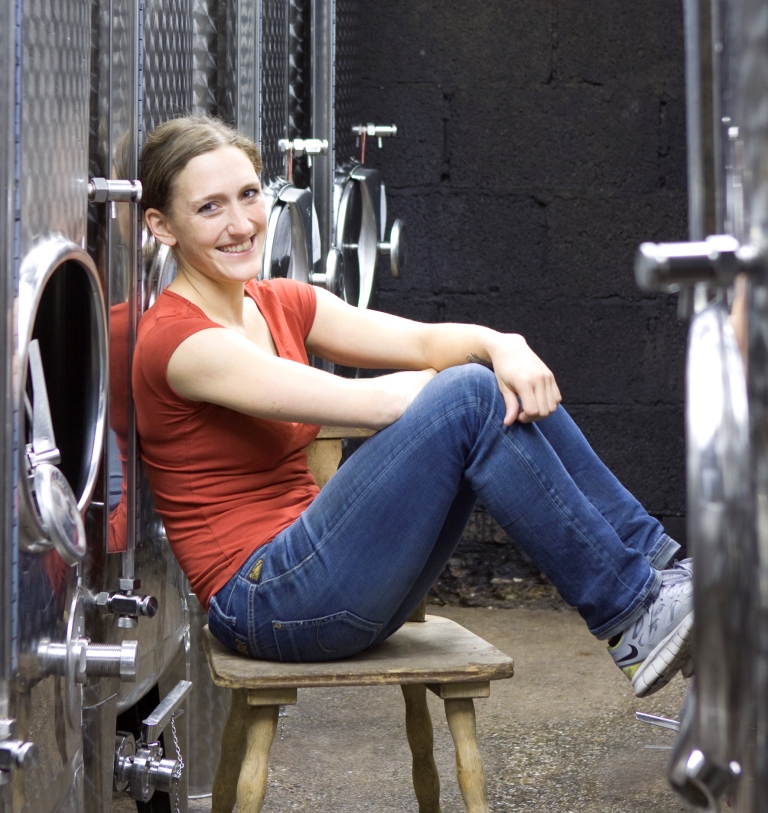 You see the same humility and tenacity in Theresa, who was honoured by Falstaff for furthering the estate’s reputation and maintaining the rare purity of its Riesling. “You start to pay so much more attention to things and you start to know the land you’re working with,” says Theresa. “I’ve done 12 vintages now and there are so many open questions, but it’s great to create a catalogue of references.”
You see the same humility and tenacity in Theresa, who was honoured by Falstaff for furthering the estate’s reputation and maintaining the rare purity of its Riesling. “You start to pay so much more attention to things and you start to know the land you’re working with,” says Theresa. “I’ve done 12 vintages now and there are so many open questions, but it’s great to create a catalogue of references.”
That catalogue is being compiled year by year by the faithful Breuer team, which extends well beyond the inner circle of Theresa, Schmoranz and Lundén. Several others have been there for 10 years and they’re engaged, energetic and helping to shape the future. She wants them to stay together and keep improving together – which is easier said than done. “I’m not a fan of ‘bigger is better’,” says Theresa. “I think there’s so much more to being more precise, just figuring out the sensitive things. There’s so much more to go for, and if we realise that it will be cool.”
